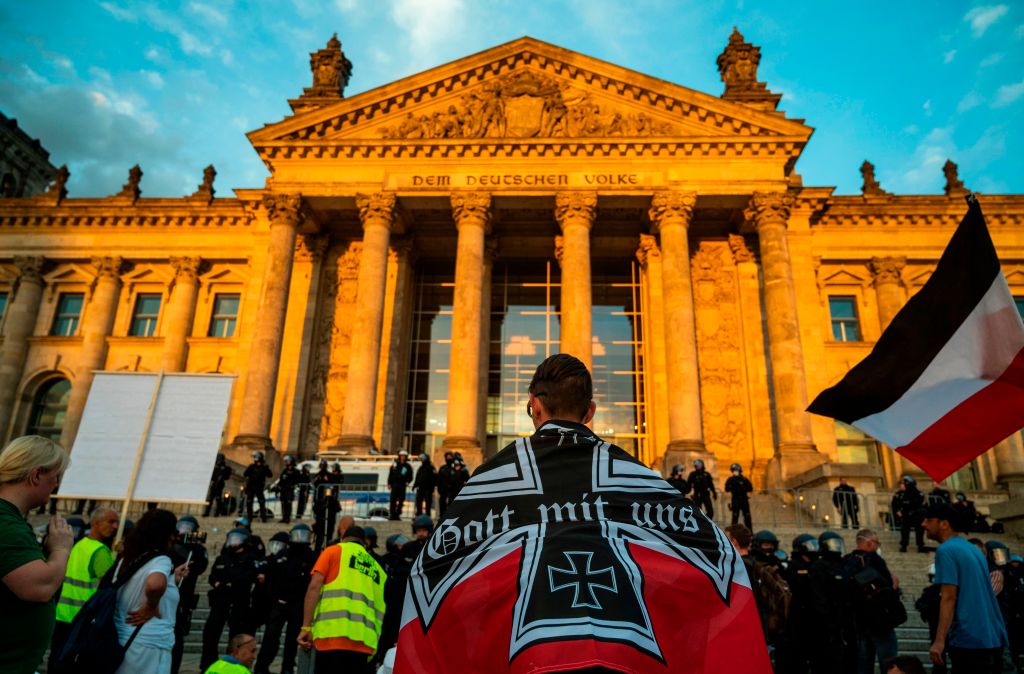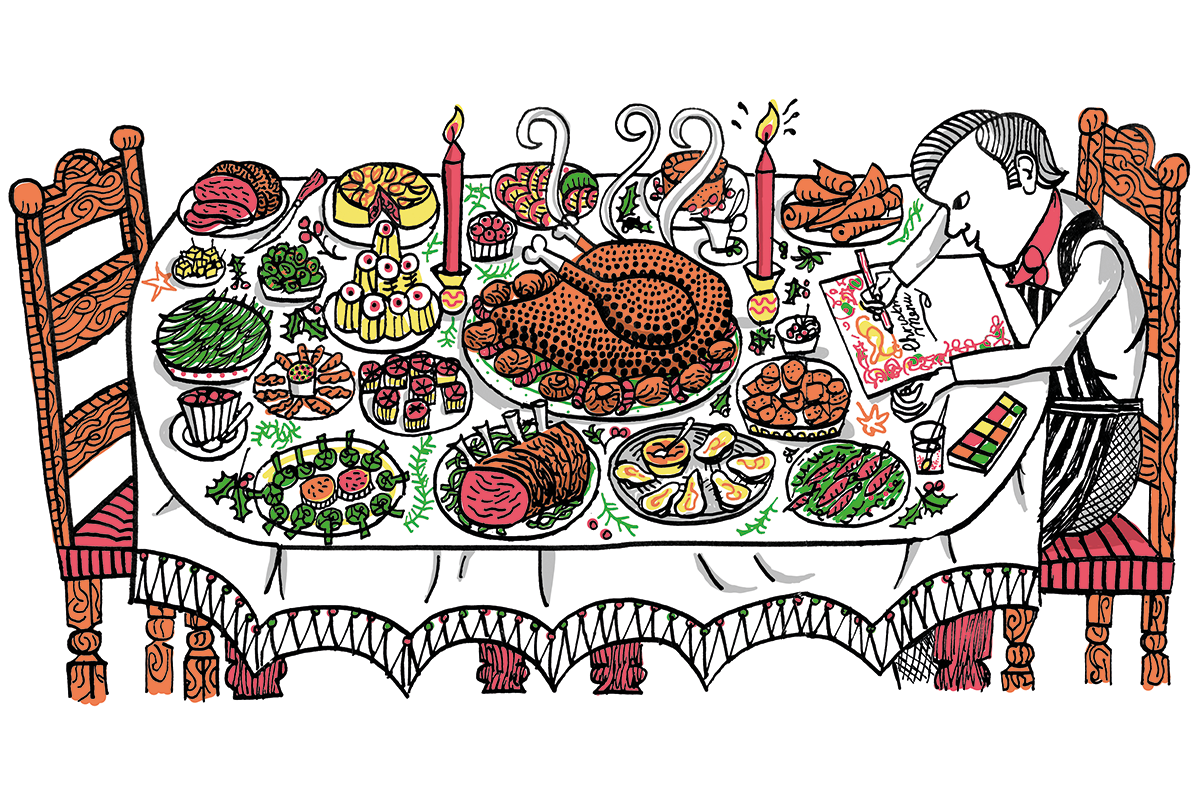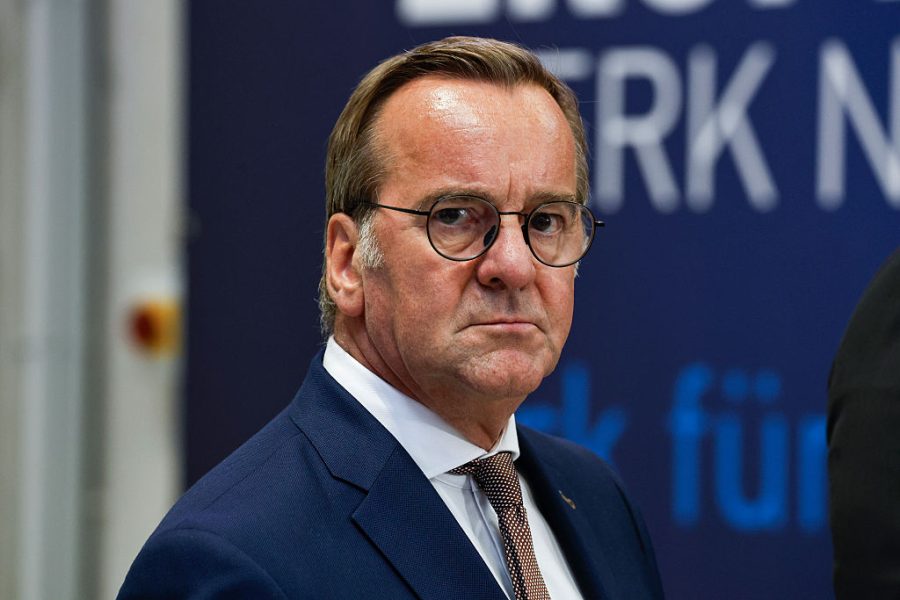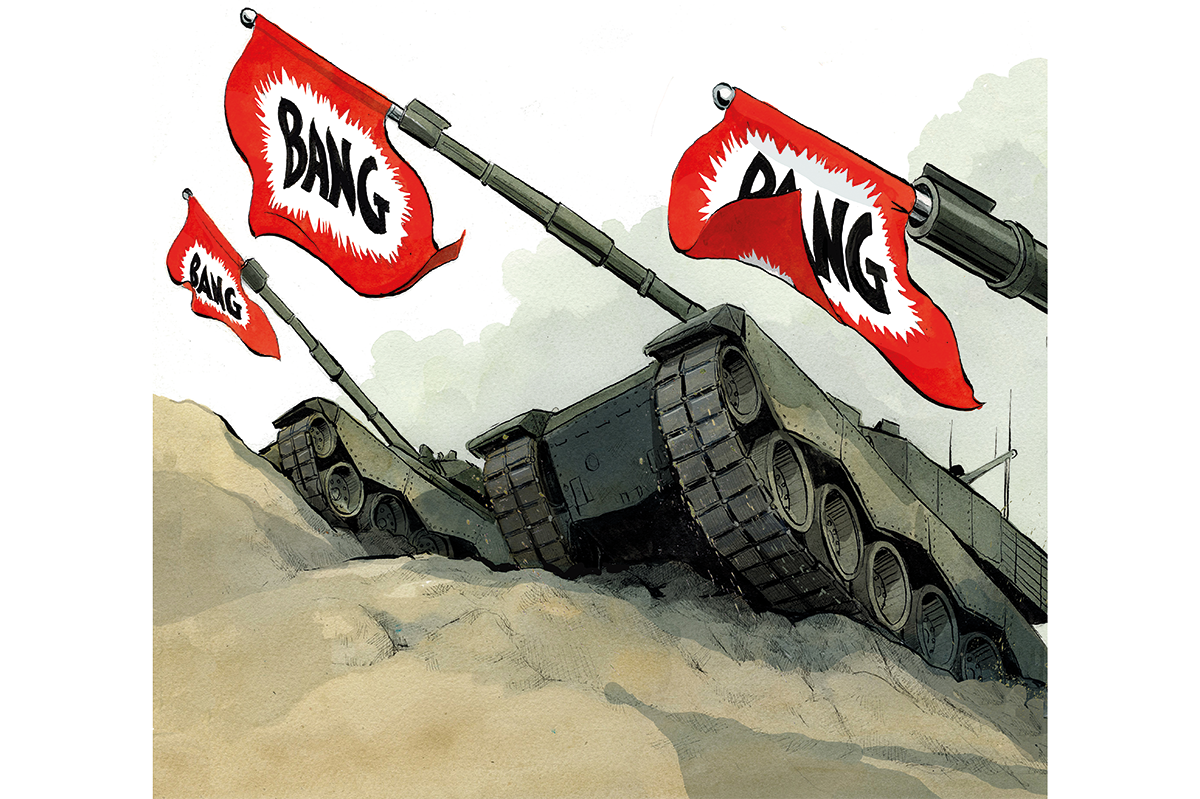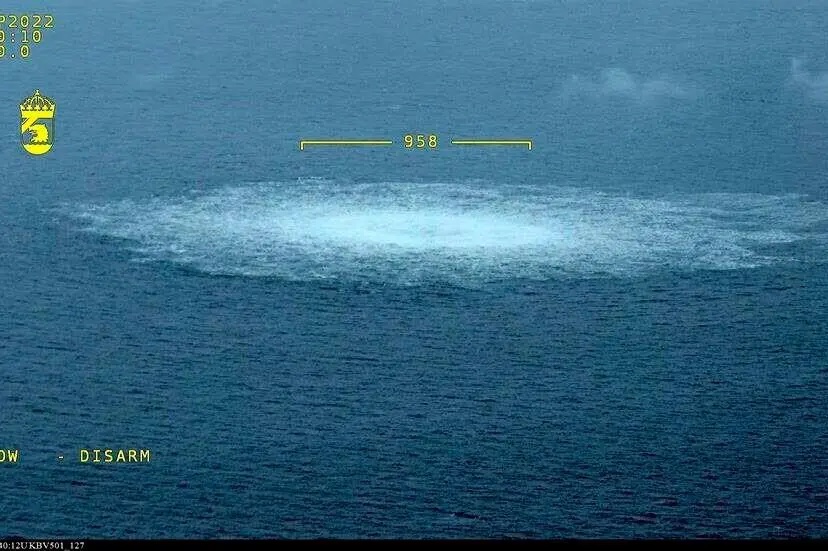Germany has been in uproar over the events that unfolded this Saturday, when 38,000 protesters gathered in Berlin and clashed with the police. The organizers of the gathering, entitled Umdenken (Rethinking), claimed they wanted to show their frustration at government measures to contain the spread of the coronavirus. Among the 38,000 were at least 3,000 far-right sympathizers and extremists, according to Berlin’s interior minister.
The run-up to Saturday’s protests was already marked by controversy, as Berlin’s local government had initially banned the gathering due to concerns that the event could contribute to the spread of the coronavirus. As is often the case in Germany when governments ban political protests, a local court decided that the constitutional right to freedom of assembly outweighed other considerations and gave the protest the go-ahead.
Observing the scene on Saturday, it became clear that those who oppose coronavirus measures because they genuinely think they are unjustified walked side by side with conspiracy theorists and extremists who would like to bring down the government. It has been reported that some protest organizers were already in talks with far-right groups in early summer and discussed strategies to boost turnout at the events, after only a few thousand showed up to the first anti-lockdown gatherings in May. Members of right-wing parties, the Identitarian Movement, neo-Nazi comradeships, and a few hooligan groups were involved in the protests. The founder of the group that organized Saturday’s protest has sought to distance himself from extremists.
The most prominent speaker on Saturday was the anti-vaccine activist and nephew of JFK, Robert F. Kennedy Jr, who flew over from the US and entered Germany despite heavy corona-related travel restrictions. The most beloved politician among the protesters was apparently Russia’s President Vladimir Putin whose name was chanted repeatedly by hundreds of his fans. If there was a thoughtful message against the current German coronavirus restrictions some protesters wanted to get across, it was overshadowed by all the other noise.
After the police decided to break up the gathering around noon, arguing that most demonstrators didn’t adhere to physical distancing rules, things got heated with hundreds of arrests and pockets of violence. Police had been preparing for possible violence, yet a few hundred protesters were still able to break through a barricade and storm the steps of Germany’s Reichstag parliament building. Some of them carried black-white-and-red flags which became the national flag of monarchist Germany in 1892, was used by right-wingers during the democratic Weimar years, and then was reintroduced as the secondary national flag under Hitler. It has been a symbol commonly employed by extremists for decades.
[special_offer]
Even though police forces were able to prevent demonstrators from entering the parliament building, which is legally protected from any kind of political protest, the outrage across the political spectrum in Germany was enormous the day after. ‘It is unacceptable that some now appear in front of the most important symbol of our democracy, the parliament, with symbols from a bad dark past, flags that have nothing to do with our modern democracy,’ said Olaf Scholz, Germany’s finance minister and leading candidate for the Social Democrats at next year’s general election.
While it is justified in condemning the protests on Saturday, Angela Merkel’s government could face a tough task in the weeks ahead. Germany has managed the coronavirus crisis better than many of its European counterparts, but new daily infections have accelerated in recent weeks and are now close to the levels recorded in May. The federal government and the 16 state governments decided last week to extend the ban on large public gatherings and impose a financial penalty of at least €50 ($60) to anybody who refuses to wear a protective mask in areas where they are mandatory.
For now, German politics seems to keep the situation under control. However, if infection rates continue to rise and governments reintroduce policies that once again shut down businesses and enforce radical social distancing, then no one knows what might happen. Saturday’s protests could look like a storm in a teacup.
This article was originally published onThe Spectator’s UK website.



